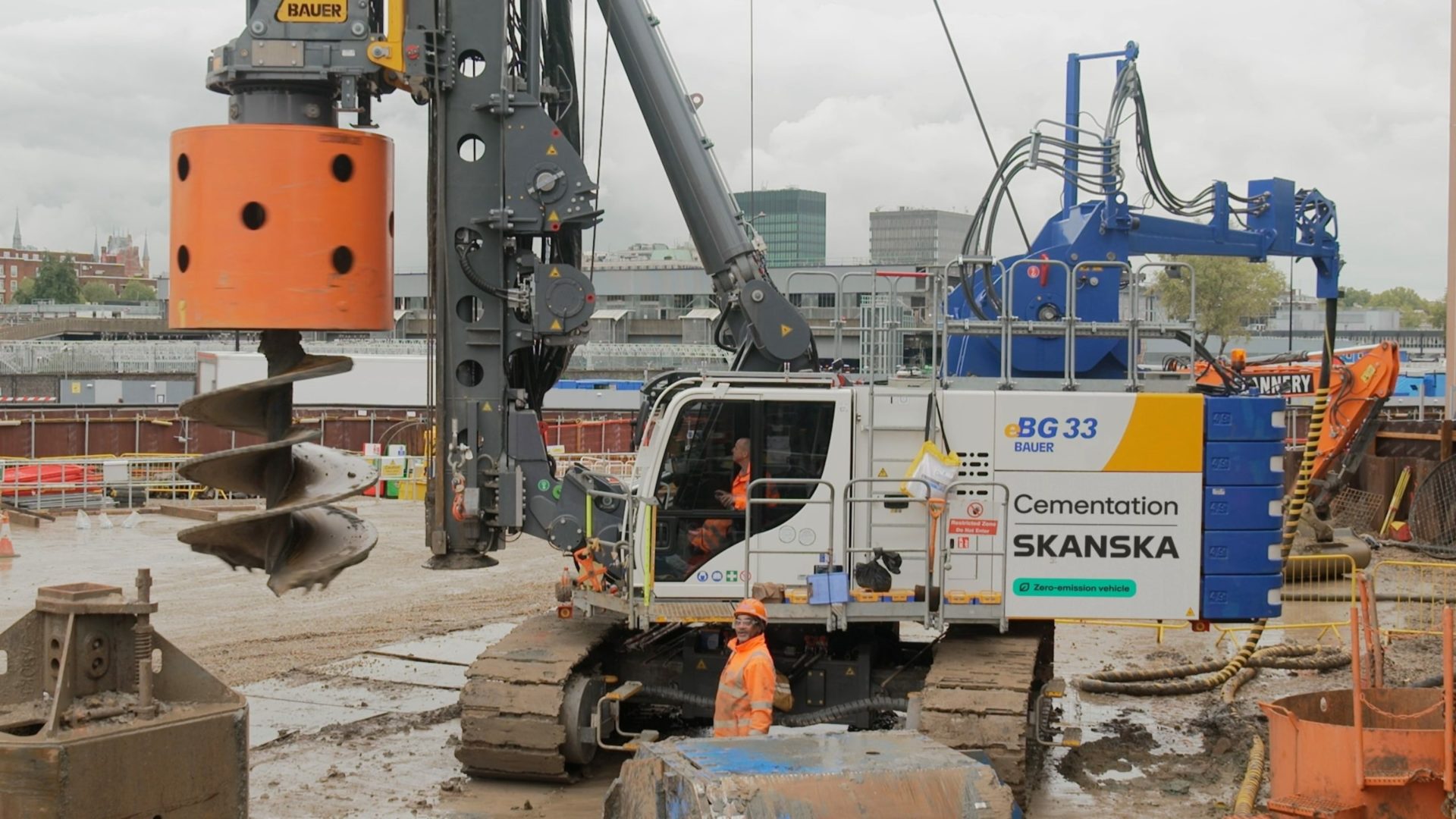
Skanska has begun a trial of a plug-in electric drilling rig to work on HS2, which it claims is a world first.
The group’s piling and ground engineering business, Cementation Skanska, is carrying out the test with BAUER Maschinen GmbH, the engine manufacturer.
The new rig’s electric engine, eBG33, replaces the diesel engine drive and uses its own electric sub-station on the HS2 site. Using the grid connection eliminates the need to rely on a back-up fuel-powered generator.
Skanska said that the 360 hours clocked to date by the electric drilling rig have saved 116 tonnes of CO2 in local emissions and cut noise emissions by 50% in rig idling and tracking mode.
The trial follows work on HS2 in Birmingham, where the rig was run on generators to test the feasibility of handing the cable in a live environment.
Last year, the company began tests in South Yorkshire of what it claimed to be the world’s first dual-fuel hydrogen and diesel piling rig.
Cementation Skanska operations director, Andrew Entwistle, said: “This type of innovation sits at the heart of our carbon reduction strategy and supports HS2 with its ambition for all its construction sites to be diesel free by 2029.
“Not only has it been valuable for us to work with the eBG33 first hand on a live project, but it’s provided an important opportunity to demonstrate the potential of all-electric heavy plant to the wider industry.”











